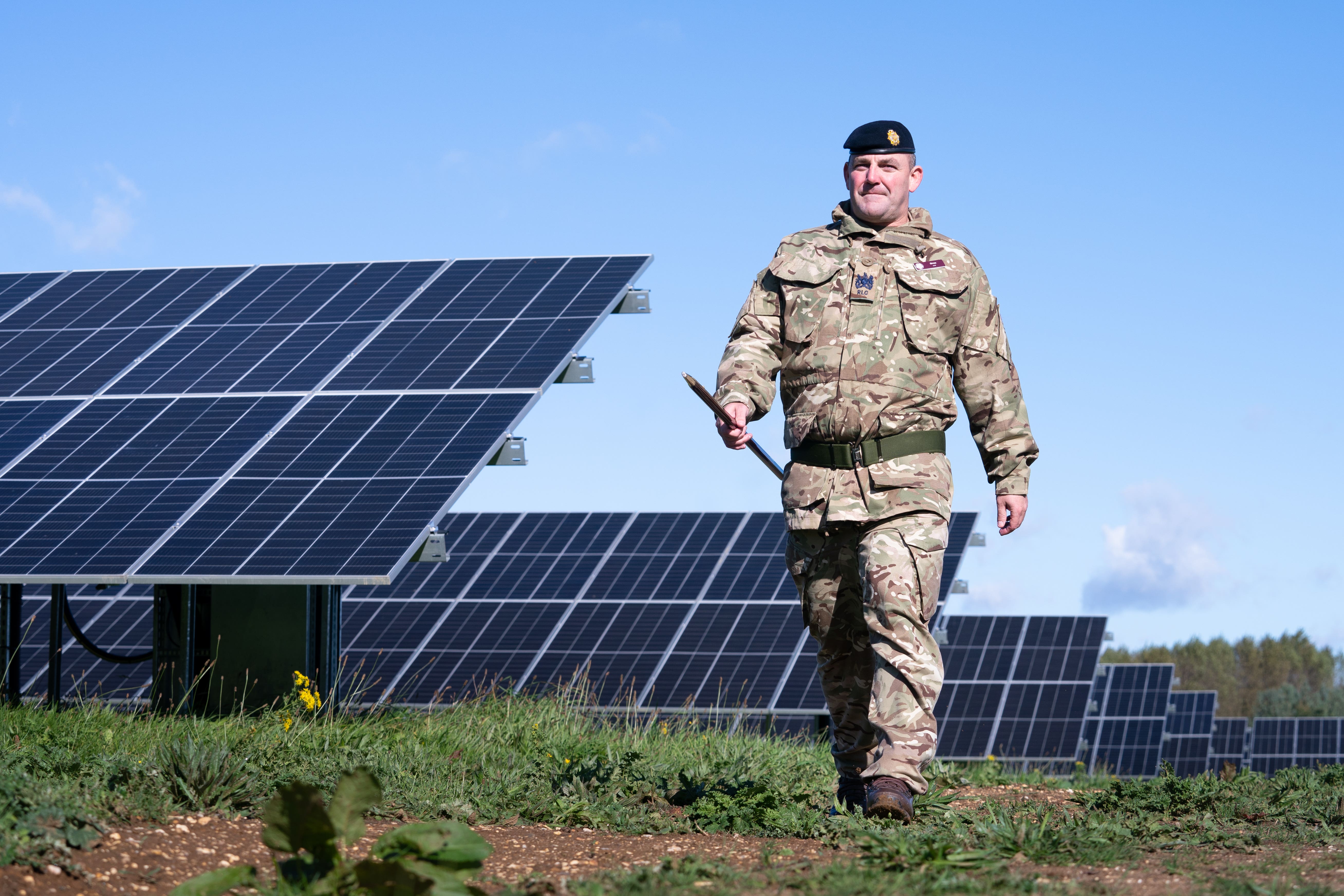UK and US should form energy partnership akin to Aukus, US senator says
The US wants its allies to supply it with renewable technology to remove its reliance on China.

The UK and US should form an energy partnership similar to the Aukus defence alliance that would see more manufacturing of renewable technology in the West, a US senator has said.
Tammy Duckworth, who represents Illinois in the US Senate, has been visiting the UK to encourage British businesses to help supply the West’s decarbonisation efforts.
She said the US is in desperate need of transformers to upgrade its electricity grid, but is struggling because much of what it needs is produced in China, which the US is trying to exclude from its green industrial revolution.
Senator Duckworth wants allied countries to produce that technology instead, which would give the West an “economic advantage” over other countries.
Referencing the defence pact between Australia, the UK and US, she said: “I think we should create a similar type of an accord, at least between the UK and the US on energy policy.
It is just as important for us to invest in renewables as it is to invest in Abrams tanks and Blackhawk helicopters and F-35 fighter jets
“For far too long, the United States and the UK, having invented many of these renewable technologies, as well as the carbon neutral technologies, walked away from them and let countries like the PRC (People’s Republic of China) take ownership of the production of the manufacturing of that technology.”
The Iraq war veteran, who lost both her legs when her Blackhawk helicopter was shot down, said the US is trying to promote solar panel installations but is having to buy them from China and is concerned the east Asian country is taking the lead in renewable technology production.
“What I’m here in the UK talking to folks about is let’s build an Aukus for energy, for renewables, let’s get American companies and UK companies to work together to fill the demand and needs of that market,” she said.
The US recently introduced its Inflation Reduction Act (IRA), which aims to encourage companies to produce renewable technology on US soil while avoiding components manufactured in China.
Consumers buying these products, such as electric cars, qualify for tax credits – and many energy analysts and campaigners have said the UK should adopt its own version of the Act.
Senator Duckworth stopped short of agreeing, but said the IRA has been a “huge stimulus” for US manufacturing, having such a positive impact that Republican politicians who voted against the Act are now taking credit for it.
Climate change has resulted in major population shifts that have resulted in major conflicts all over the world, everywhere.
She also described climate change as a national security issue that threatens global peace – and that the cheaper renewable technology becomes, the more other countries will turn away from oil.
“What I’m doing is I’m trying to make sure that we put the same efforts into decarbonisation, the same efforts, priorities, into renewables that we do in terms of national security,” she said.
“This is a national security issue. It is just as important for us to invest in renewables as it is to invest in Abrams tanks and Blackhawk helicopters and F-35 fighter jets.
“Climate change has resulted in major population shifts that have resulted in major conflicts all over the world, everywhere.
“You see people no longer able to stay in their indigenous areas having to move because of crop failure and trying to go into new places. You see this in Africa, in particular.
“And so part of what we need to do is, again, help nations be able to manage that shift into a renewable future and find ways to make those the economic opportunities of the future.”
Bookmark popover
Removed from bookmarks